
FAQs
What are Executive Functions?
We all have them! Executive functions are higher order cognitive processes that enable us to handle daily activities, get things done, adjust to new situations and manage emotions.
From successfully navigating our working or school days, to staying on top of our home and personal lives, executive functions enable us to do everything from basic day-to-day tasks through to complex projects,
Factors such as stress, inadequate sleep, feelings of loneliness and lack of physical activity can negatively impact our executive functions.
As children, executive functions are essential to help us learn and get on with those around us.
As adults, executive functions help us manage every day demands both at work and at home. Whether we are paying bills or meeting deadlines, we rely on executive function skills including time management, organisation, prioritisation and planning. We can risk relationships with the people we care about and career stability when executive dysfunction becomes a chronic and unaddressed problem.
Our three primary executive functions are:
- Working memory
- Cognitive flexibility
- Inhibitory control
What are Executive Function skills?
Our three primary executive functions are highly dependent upon each other and need to work in co-ordination to produce eleven recognised higher-order executive function skills that control our thoughts, actions, emotions and behaviours.
Our executive function skills develop during childhood and peak in our mid-twenties, but they can be improved and maintained throughout our life.
- Planning and prioritisation – Setting goals and outlining steps necessary to achieve them.
- Organisation – Arranging thoughts, materials and tasks in a structured manner.
- Task initiation – Starting tasks independently without procrastination.
- Time management – The capacity to allocate time effectively and prioritise tasks.
- Sustained attention – Maintaining concentration on tasks and limiting any distractions.
- Flexibility – Adapting plans in the face of new information, obstacles and mistakes.
- Goal directed persistence – Identifying problems, evaluating options and implementing solutions.
- Metacognition – Assessing one’s own performance or understanding and making adjustments to improve them.
- Working memory – Remembering and manipulating information over short periods.
- Response inhibition – Controlling impulsive behaviours, resisting temptations and responding appropriately to situations.
- Emotional Regulation – Managing emotions to achieve goals, complete tasks or control and direct behaviour.
Certain medical conditions and mental health issues can affect our executive function skills and they can also decline with age.
Enhancing these skills can be achieved through regular practice. Developing these skills through coaching can greatly enhance daily functioning, academic performance and personal relationships.
What is the structure of EF coaching?
- Initial consultation: The process of executive function coaching starts with an initial half hour consultation for us to meet to discuss challenges that you are facing, to consider how executive function coaching can help you and, most importantly, for us to get to know each other.
- Sessions: Following on from the initial consultation, we will meet regularly for one hour tailored coaching sessions based on your unique strengths and areas of development, including current barriers and challenges that you are experiencing.
- Strategies: During each session we will discuss and agree clear strategies to help you develop stronger executive function skills.
- Goals: We will also consider and set realistic and achievable goals for you to work towards, both in the shorter and longer terms.
- Progress: Measuring your progress is an important part of our sessions as it helps you to recognise and celebrate your progress.
- Accountable: Regular check-ins provide structure and support, keep you accountable and help you stay motivated and make consistent progress.
- Support: If things don’t go as planned, sessions and check-ins provide the means to get support, revise strategies and get back on track quickly.
What are the costs of EF coaching?
- 30 minute 1:1 initial consultation (Free)
- 60 minute 1:1 session (£100).
- 15 minute check-in session (£25).
- Bundle of 6 x 60 minute sessions for cost of 5 sessions, plus optional 6 x 15 minute catch-up sessions (£500).
Who benefits from Executive Function coaching?
- Professionals and managers: Building stronger executive functions can help professionals and managers to increase productivity, develop leadership skills and improve decision-making, ultimately enhancing career performance and job satisfaction.
- Personal development: For individuals considering personal development, executive function coaching helps them boost their productivity, emotional control and stress management.
- Children with ADHD and dyslexia: Executive function skills like working memory, organisation and response inhibition are often underdeveloped in children with ADHD, dyslexia or other neurodevelopmental conditions.
- Adults with ADHD and dyslexia – Adults with ADHD, dyslexia or other neurodevelopmental conditions often find it challenging to plan, initiate tasks and maintain focus. Executive function coaching provides valuable support by helping them stay organised in their personal lives and improving their productivity in the workplace.
- Academic performance: Improving executive functions can help students develop better study habits, time management and problem-solving skills, leading to improved academic performance.
- Traumatic Brain Injury: As part of the rehabilitation process for individuals with Traumatic Brain Injury (TBI), executive function coaching helps them regain cognitive skills lost due to injury.
- Dementia: Older adults with dementia or individuals with Alzheimer’s Disease can help delay or manage their cognitive decline by strengthening their executive function skills through coaching.
- Anxiety or Depression: For people with anxiety or depression, executive function coaching develops skills of emotional regulation, goal directed persistence and task initiation, helping them feel less overwhelmed and more able to cope.
How does Executive Function coaching have an impact on mental well-being?
Executive function coaching is a transformative experience that that has a positive impact on our mental well-being by helping us to feel …
- Confident – As we develop strategies to tackle challenges, our self-confidence increases. We become more confident in our ability to manage complex tasks and reach our goals.
- Greater clarity – Executive function coaching helps us develop greater mental clarity by teaching us how to prioritise tasks, organise thoughts and break down complex projects into smaller, more manageable steps. This in turn helps reduce stress.
- Sense of relief – As we build the necessary skills to manage areas of our lives that once felt frustrating or overwhelming, we often feel a sense of relief. This can result in lower levels of stress and anxiety.
- Motivated – When we set clear goals and implement effective strategies, we often feel more inspired to take action. As we witness our progress, our motivation to keep improving grows stronger
- Empowered – As we develop effective strategies to manage our tasks, time and responsibilities, we experience a greater sense of control of our lives and decisions. This fosters a feeling of empowerment.
- Sense of achievement: Acknowledging our progress, reaching our goals and taking pride in what we have accomplished gives us a deep sense of achievement.
- Able to Cope: Executive function coaching builds resilience by providing us with coping mechanisms and problem-solving skills, helping us feel more prepared to navigate setbacks.

